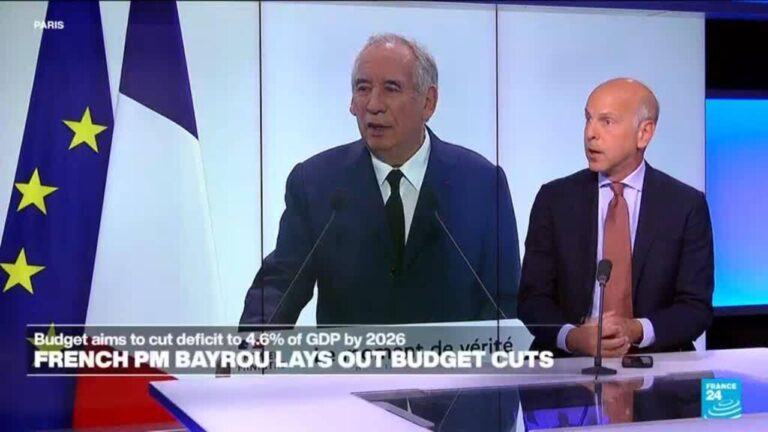France is grappling with a deepening budget crisis as Prime Minister François Bayrou proposes a controversial measure to curb public spending: the potential abolition of two national holidays. In an effort to address the mounting fiscal challenges, the government’s latest plan aims to boost economic productivity by reducing non-working days, a move that has already sparked debate across political and social spheres. This development marks a significant shift in France’s approach to balancing its finances amid persistent economic pressures.
French Government Proposes Eliminating Two National Holidays to Address Budget Deficit
Facing a significant budget shortfall, the French government, led by Prime Minister Bayrou, has proposed the controversial measure of eliminating two national holidays. This initiative is part of a broader strategy aimed at reducing public expenditures and increasing economic productivity. The two holidays under consideration are yet to be officially named, but sources suggest they are among the less culturally significant observances. This bold step is expected to spark debate among labor unions and the general public, who traditionally value these holidays as essential for work-life balance and cultural identity.
The proposed changes come as France grapples with rising debt and the need to stabilize its financial footing. Officials argue that by reducing the number of non-working days, the country could boost annual working hours, thereby enhancing overall economic output. Below is a brief overview of the potential impact:
| Factor | Current Situation | Potential Impact |
|---|---|---|
| Number of National Holidays | 11 Days | Reduced to 9 Days |
| Annual Working Hours | 1,607 Hours | Increase by approx. 14-16 hours |
| Public Opinion | Mixed, leaning toward preservation | Potential increase in protests and union actions |
- Economic experts weigh the benefits against social unrest risks.
- Trade unions warn of negative impacts on workers’ morale.
- Government officials emphasize fiscal responsibility and competitiveness.
Public and Political Reactions to Prime Minister Bayrou’s Controversial Spending Cuts
Public sentiment has been sharply divided since Prime Minister Bayrou’s announcement. Many French citizens expressed outrage on social media and at local community gatherings, arguing that national holidays form a crucial part of the cultural fabric and collective identity. Workers’ unions have rapidly mobilized, warning of potential strikes and protests if these proposed cuts move forward. On the other hand, a segment of the population, particularly fiscal conservatives and small business owners, see the measure as a pragmatic step towards reducing the national deficit and boosting economic efficiency.
Political leaders across the spectrum have reacted swiftly, with opposition parties lambasting the Prime Minister’s approach as short-sighted and politically tone-deaf at a time of social fragility. In Parliament, debates have been heated, highlighting the tension between economic austerity and social cohesion. Below is a summary of key political responses:
| Party | Position | Spokesperson |
|---|---|---|
| Socialist Party | Strongly Opposed – calls for reversal | Marie Dubois |
| Republicans | Critique the timing but open to alternatives | Jean-Luc Martin |
| National Rally | Mixed – supports cuts but stresses national unity | Claire Roche |
| La République En Marche | Backing PM Bayrou with budget reform | Éric Fontaine |
- Unions: Prepare for nationwide strikes if cuts proceed
- Economists: Mixed reviews – some applaud fiscal discipline, others worry about long-term social costs
- General Public: Active campaigns both supporting and opposing cuts on social media platforms
Experts Weigh In on Fiscal Impact and Alternative Measures to France’s Budget Crisis
Leading economists have shared varied perspectives on the proposed fiscal measures introduced by PM Bayrou. While the suggestion to abolish two national holidays aims to enhance productivity and realign France’s public spending, some experts warn of potential social backlash and question the actual savings generated. Labor economist Dr. Isabelle Laurent emphasized that such reforms could marginally improve work output but are unlikely to address deeper structural inefficiencies within the budget. Meanwhile, public finance analyst Marc Fournier pointed to the risk of eroding social cohesion, which could translate into longer-term economic costs. He advocates for a more comprehensive approach that balances austerity with targeted investment in growth sectors.
Alternative proposals are gaining traction among policy circles, focusing on both revenue expansion and cost containment without directly impacting established cultural practices. These include:
- Introducing a streamlined tax code to reduce loopholes and increase compliance.
- Optimizing public sector pensions to gradually adjust benefits in line with demographic realities.
- Enhancing digital government services to cut administrative expenses and improve efficiency.
| Measure | Projected Savings (€ billion) | Potential Risks |
|---|---|---|
| Abolishing National Holidays | 0.5 | Social unrest, morale decline |
| Tax Code Reform | 2.0 | Taxpayer resistance |
| Pension Adjustments | 1.7 | Political opposition |
| Digitalization of Services | 1.2 | Implementation costs |
Closing Remarks
As France grapples with mounting fiscal challenges, Prime Minister Bayrou’s proposal to abolish two national holidays underscores the difficult choices facing the government in its bid to reduce public spending. While the move aims to bolster economic resilience, it is likely to spark debate over national identity and workers’ rights. The coming weeks will reveal how lawmakers, unions, and the public respond to this latest measure in France’s ongoing budget crisis.




